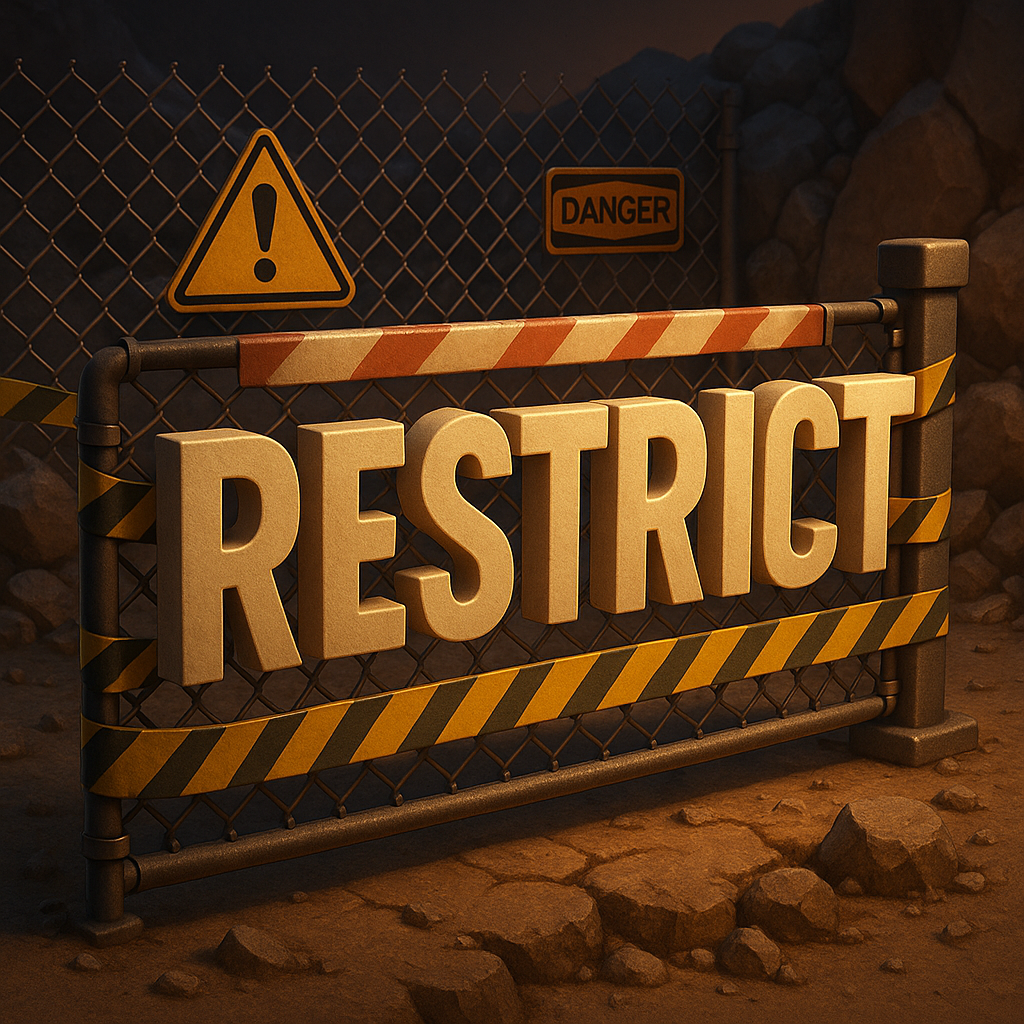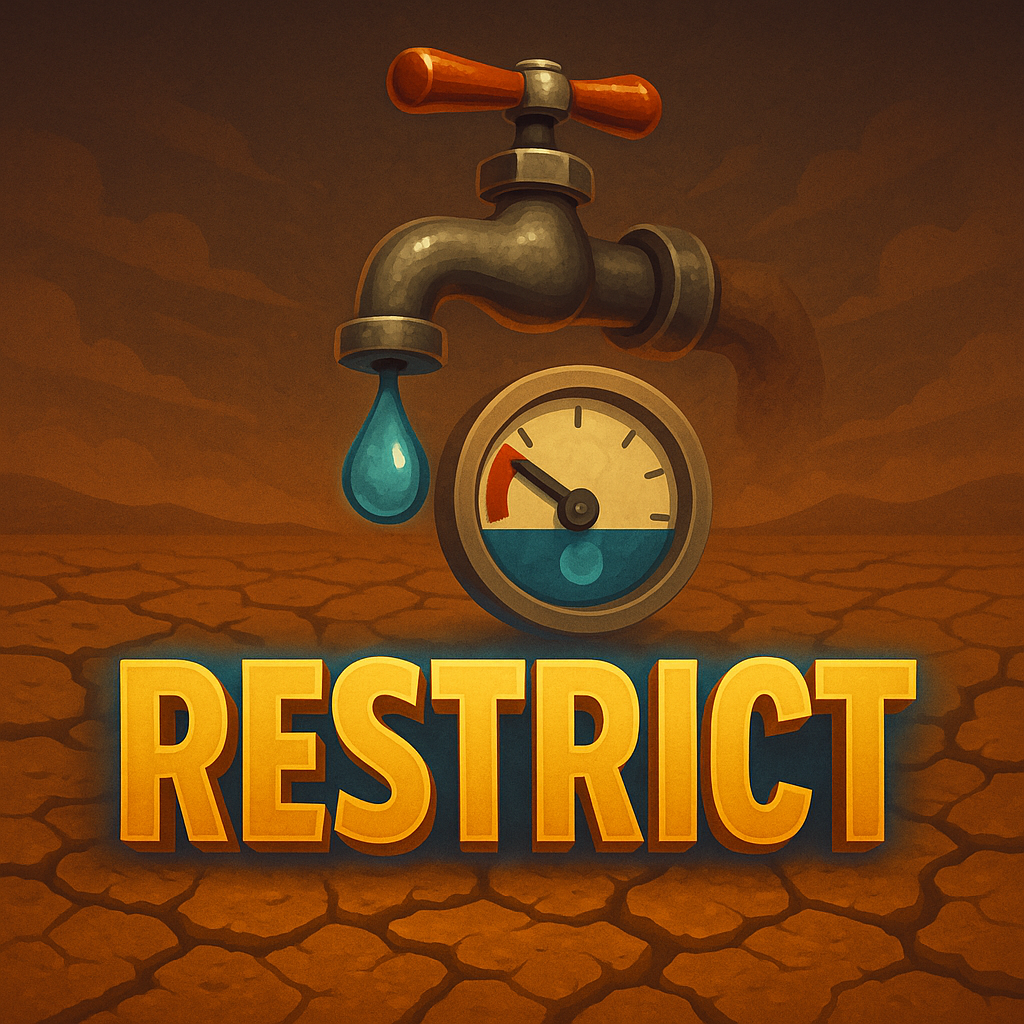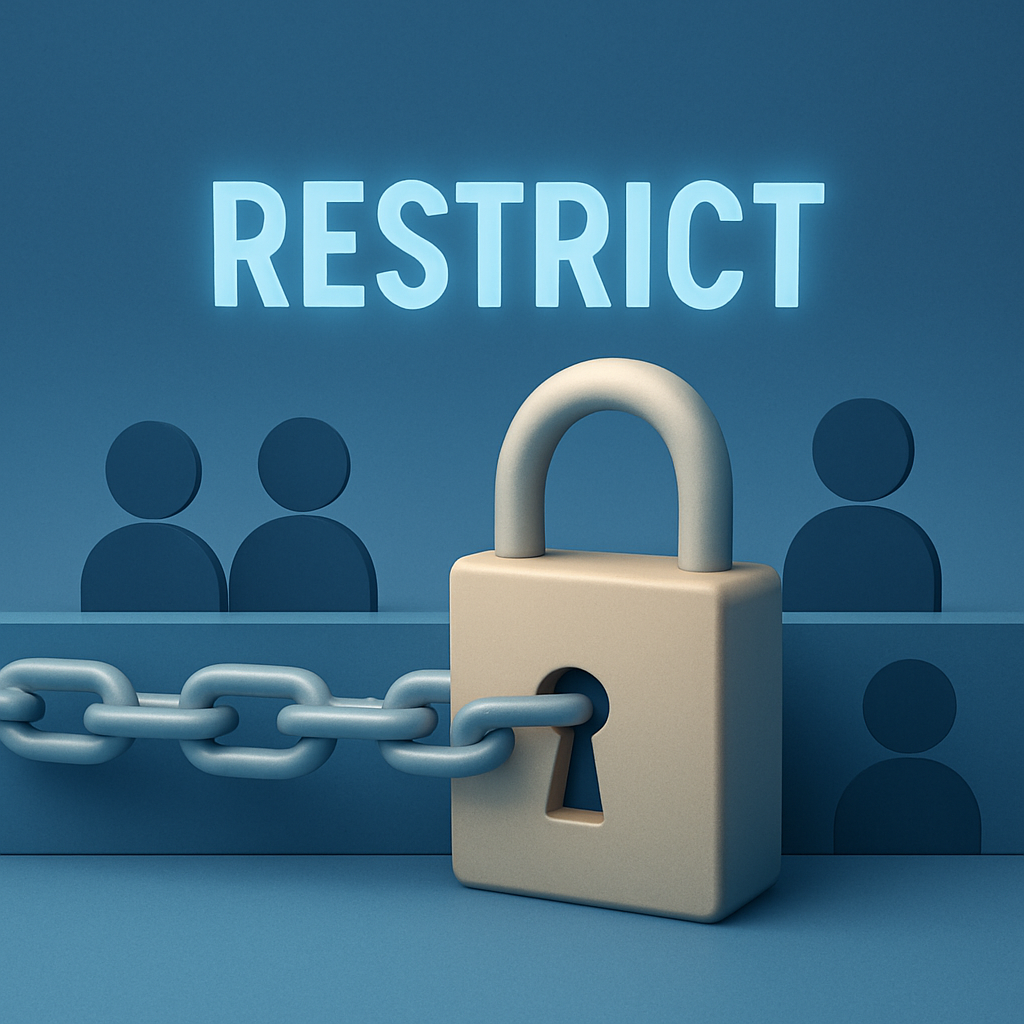Restrict
Definition
Restrict means to limit the extent, amount, or range of something; to confine within bounds or under control. It is most commonly used as a transitive verb.
Parts of Speech
- Verb (transitive)
Pronunciation
American English
- IPA: /rɪˈstrɪkt/
- Respelling: ri-STRIKT
British English
- IPA: /rɪˈstrɪkt/
- Respelling: ri-STRIKT
Etymology
Mid 16th century: from Latin restrictus, past participle of restringere ‘to bind fast,’ from re- ‘back’ + stringere ‘to draw tight.’
Derivatives
- restriction (noun)
- restrictive (adjective)
- restrictively (adverb)
- unrestricted (adjective)
- restricts, restricting (verb forms)
Synonyms
- limit
- confine
- constrain
- curb
- bound
Antonyms
- allow
- permit
- free
- enable
- expand
Usage
"The government proposed new laws to restrict the sale of certain firearms."
"Parking is restricted to permit holders only."
Related Terms
- Limit: A point or level beyond which something does not or may not extend.
- Confine: To keep within bounds; restrict.
- Constraint: A limitation or restriction.
- Curb: To restrain or keep in check.
- Regulate: To control or maintain the rate or speed of.
Detailed Definitions
Verb
- To limit the range, extent, or amount of – to set boundaries or reduce the scope of something so it does not exceed specified limits.
- Example: "New safety rules restrict access to hazardous areas."
- To confine within bounds or under control – to keep something within certain limits or restraints.
- Example: "We had to restrict water usage during the drought."
- To place conditions on; to subject to restrictions – to impose rules or requirements that must be met.
- Example: "The contract will restrict employees from joining competitors for two years."
restrict

New safety rules restrict access to hazardous areas.

We had to restrict water usage during the drought.

The contract will restrict employees from joining competitors for two years.





